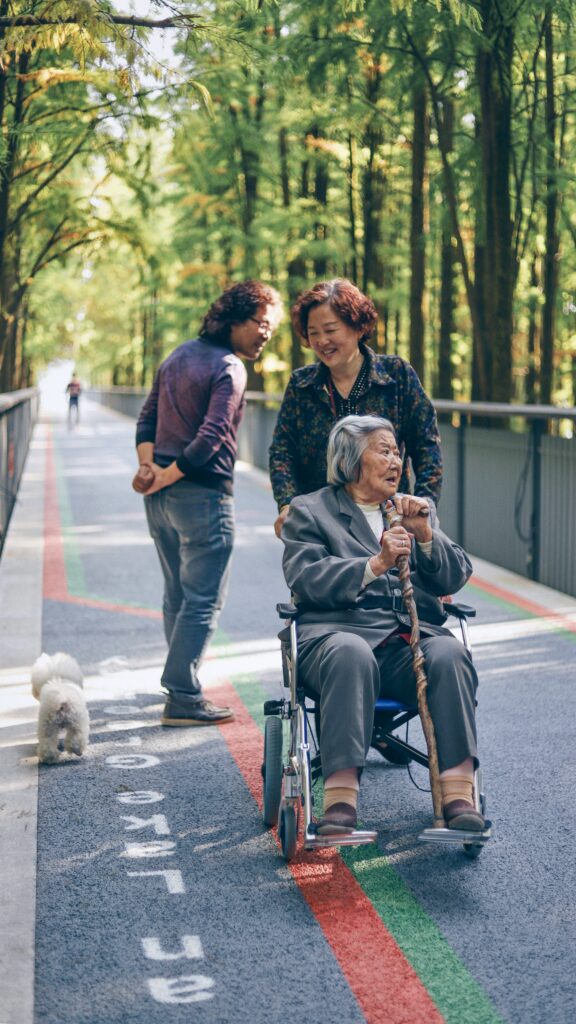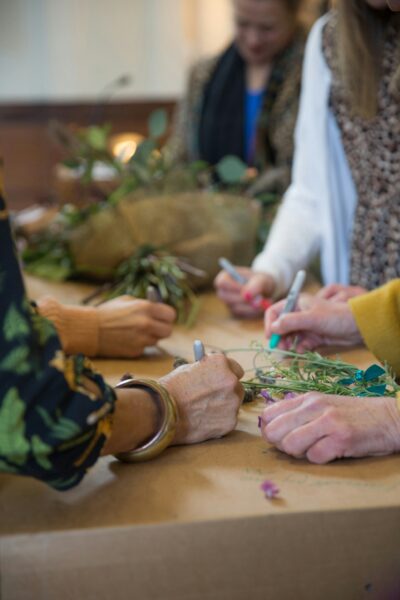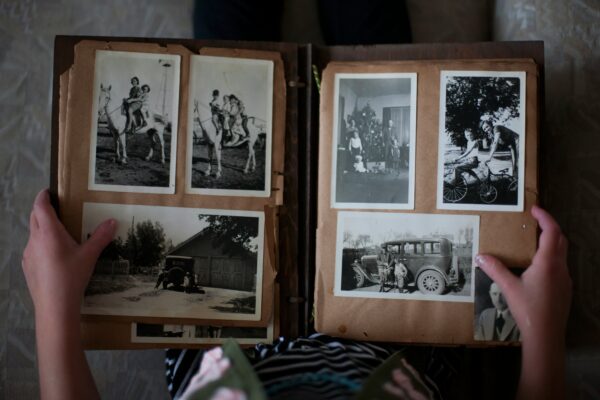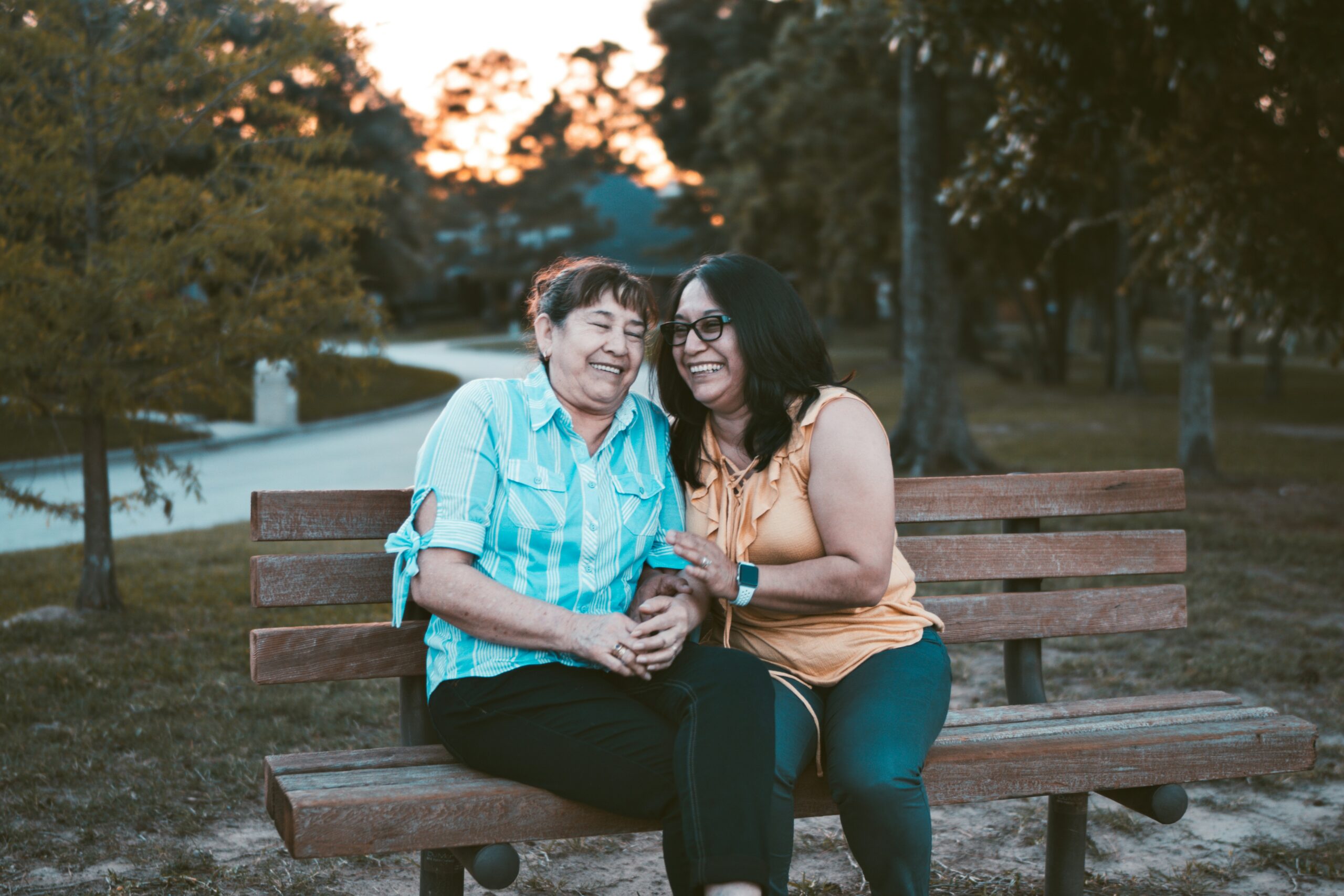Dealing with Grief and Loss as a Primary Caregiver During the Holidays
The holiday season is often seen as a time for joy, togetherness, and family traditions—a time filled with storytelling and unity. But for those who have served as primary caregivers and experienced loss, the season can feel especially challenging. Grief can hit like waves—some gentle, others overwhelming—triggered by the empty seat at the table, the untouched appetizer only your loved one enjoyed, or the spot on the couch now occupied by someone else. Even when their caregiving role has ended, many caregivers continue to focus on others, often replying, “I’m doing well,” even when they feel far from it. Grieving while adjusting to the absence of a loved one is a deeply personal journey, further complicated by the emotional weight and expectations of the holidays.
This blog explores the unique struggles primary caregivers face, how families can support them, and meaningful ways to honor lost loved ones. Most importantly, it offers heartfelt gratitude to caregivers for their time, dedication, and selflessness. Thank you for all you’ve done and continue to do.
Why Grieving Is Especially Challenging for Primary Caregivers
For primary caregivers, the bonds forged during caregiving are deeply emotional and often go beyond the physical tasks involved. When a loved one passes away, the loss feels magnified by the caregiver’s experiences and responsibilities. Here are four reasons why grief can feel especially overwhelming:
 Loss of Identity and Routine
Loss of Identity and Routine
Primary caregivers often structure their lives around the needs of their loved ones. With their passing, caregivers may feel a loss of purpose, identity, and routine. The emptiness left behind can make the holidays, which are filled with traditions and routines, feel even more bleak and unmanageable.- Emotional and Physical Exhaustion
Caregiving is both physically and emotionally demanding. Many caregivers often neglect their own needs while focusing entirely on their loved ones. After the loss, this exhaustion is compounded by years of caregiving and the emotional weight of grief. The holidays, with their many obligations and social expectations, only intensify this fatigue. - Unresolved Guilt or Regret
Primary caregivers frequently carry feelings of guilt or regret, wondering if they could have done more for their loved ones. These emotions often resurface during the holidays, especially when reminders of past moments together arise. Caregivers may also struggle with memories of times they lost their patience or felt frustrated, leading to feelings of shame and regret. - Heightened Sensitivity to Traditions
Holidays are loaded with memories and traditions that often revolve around family and loved ones. For primary caregivers, even small triggers—like a favorite dish, holiday song, or movie—can bring intense sorrow, making the season feel isolating and overwhelming. Grieving as a primary caregiver during the holidays is a uniquely challenging experience, blending the weight of loss, exhaustion, and the sharp sting of cherished memories.
How Families Can Support Primary Caregivers During the Holidays
Family and friends play a pivotal role in helping primary caregivers navigate grief. Support during the holidays should be intentional and compassionate. As A Monster Calls reminds us, “The only way to overcome a loss is to make a space for it in your heart.” By helping primary caregivers make space for their grief instead of pushing it aside, families can offer the kind of support that truly matters. Here are three ways to help:
 Encourage Open Communication with Primary Caregivers
Encourage Open Communication with Primary Caregivers
Caregivers often suppress their emotions to focus on others, but the holidays can intensify their grief. Creating a safe space for them to share how they’re feeling—without fear of judgment—is crucial. Simple, open-ended questions like, “How are you feeling about the holidays this year?” or, “Is there anything you’d like to talk about?” can invite honest dialogue. Acknowledging their grief rather than avoiding the subject helps them feel seen and supported, allowing them to begin making that space for their loss.
Share Responsibilities with Primary Caregivers
The holidays come with many responsibilities that can feel overwhelming to someone grieving. Recognizing this and offering to take over tasks like cooking, decorating, or gift shopping can significantly lighten their load. As Winnie the Pooh reminds us, “Sometimes, the smallest things take up the most room in your heart.” Small acts of kindness—offering to wrap gifts, bring over a meal, or handle the holiday shopping—can make a big difference for a primary caregiver who may feel emotionally drained.
Incorporate the Lost Loved One’s Memory with Primary Caregivers
Honoring the memory of a lost loved one can bring comfort and connection during the holidays. Lighting a candle in their honor, sharing favorite stories, or preparing a dish they loved are all meaningful ways to keep their presence alive. As Helen Keller once said, “What we have once enjoyed deeply we can never lose. All that we love deeply becomes a part of us.” By weaving their loved one’s memory into holiday traditions, families show primary caregivers that grief can coexist with love, making the season feel less isolating.
Ways to Honor Loved Ones During the Holidays for Primary Caregivers
For primary caregivers, the holiday season is a time to remember loved ones and keep their presence alive. Here are three meaningful ways caregivers and their families can honor their loved ones during this time:
 Create a Memory Ritual for Primary Caregivers
Create a Memory Ritual for Primary Caregivers
Establish a tradition that celebrates the loved one’s memory. This could include making their favorite dish, playing a song they loved, or even setting a special place for them at the table. Rituals provide a tangible way for the primary caregiver to feel close to their loved one and for families to honor their legacy.
Give Back in Their Name for Primary Caregivers
Volunteering or donating to a cause that was important to your loved one can be a meaningful gesture of remembrance. It helps primary caregivers transform their grief into a positive action that can offer a sense of purpose and connection to the community during the holidays.
Craft a Tribute for Primary Caregivers
A photo album, a letter, or a handmade ornament can serve as a tribute to a loved one. Crafting these items gives the primary caregiver an opportunity to process their grief while honoring the person they cared for.
Moving Forward with Compassion for Primary Caregivers
 For primary caregivers, the holidays after a loss can feel overwhelming, filled with bittersweet reminders of what once was. It’s essential to approach this time with self-compassion, allowing yourself the space to grieve and feel the full spectrum of emotions. Families can provide invaluable support by listening, sharing responsibilities, and honoring the memory of those who are no longer with us. Sometimes, the most therapeutic gift is simply sitting in silence or sadness alongside someone who is grieving.
For primary caregivers, the holidays after a loss can feel overwhelming, filled with bittersweet reminders of what once was. It’s essential to approach this time with self-compassion, allowing yourself the space to grieve and feel the full spectrum of emotions. Families can provide invaluable support by listening, sharing responsibilities, and honoring the memory of those who are no longer with us. Sometimes, the most therapeutic gift is simply sitting in silence or sadness alongside someone who is grieving.
Although grief is not a linear process, meaningful moments of connection and healing are possible during the holidays. By honoring your loved one’s memory and leaning on your support system, you can navigate the season with grace and resilience. Healing doesn’t mean forgetting; it means learning to carry the love and memories of your loved one forward into the future.
Final Thoughts for Primary Caregivers
 This holiday season, take time to prioritize your mental health as a primary caregiver. Recognize the importance of support, honoring your loved one’s memory, and allowing yourself the grace to feel both sorrow and joy. Grief is a testament to the love you’ve shared, and it is possible to embrace the holidays with intention, compassion, and heart.
This holiday season, take time to prioritize your mental health as a primary caregiver. Recognize the importance of support, honoring your loved one’s memory, and allowing yourself the grace to feel both sorrow and joy. Grief is a testament to the love you’ve shared, and it is possible to embrace the holidays with intention, compassion, and heart.
*Personal Note to Primary Caregivers
On a personal note, I would like to thank my mother for her unwavering strength and dedication as a primary caregiver. To all caregivers who have sacrificed parts of their lives to care for a parent, spouse, or family member—thank you. Your selfless actions and love set an incredible example, teaching others what unconditional love truly looks like.
To the primary caregivers reading this: you are doing an incredible job. You are appreciated more than you know. It is okay to take time for yourself and to focus on your own needs—you’ve earned it. And when the time comes for your caregiving role to end, remember that the person you cared for appreciated everything you did, even if they didn’t always say it. Now, it’s your time to rest and recharge. You’ve more than earned it.
Discover Bright Idea Counseling’s Services
 At Bright Idea Counseling, we provide a variety of therapy services designed to address your specific needs. Whether you’re seeking individual therapy, family support, or guidance for managing stress and mental health challenges, our compassionate team is here to help you every step of the way.
At Bright Idea Counseling, we provide a variety of therapy services designed to address your specific needs. Whether you’re seeking individual therapy, family support, or guidance for managing stress and mental health challenges, our compassionate team is here to help you every step of the way.
Ready to take the next step? Click below to learn more about how we can support you and your loved ones.
Support for Your Family’s Well-Being
 Every family encounters unique challenges, and at Bright Idea Counseling, we’re here to help you navigate them. From everyday stress to more complex concerns, our experienced therapists offer personalized services to support your family’s growth, connection, and resilience.
Every family encounters unique challenges, and at Bright Idea Counseling, we’re here to help you navigate them. From everyday stress to more complex concerns, our experienced therapists offer personalized services to support your family’s growth, connection, and resilience.
You don’t have to face these challenges alone. Contact us today to learn more about how we can help you create a path toward balance and well-being. Schedule a consultation and take the first step toward a brighter future with Bright Idea Counseling.



